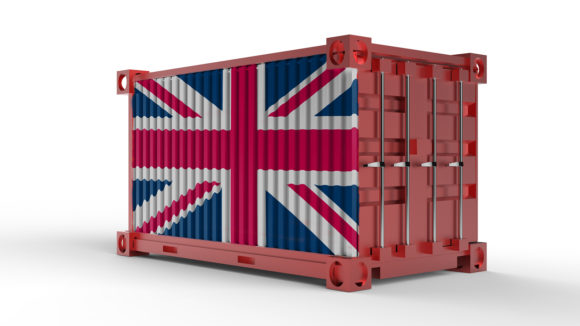LONDON — Companies are leaving Britain’s shipping registry due to uncertainty over Britain’s departure from the European Union and future commercial arrangements with the bloc, industry officials say.
All commercial ships have to be registered, or flagged, with a particular country partly to comply with safety and environmental regulations. Shipping companies in many so-called “flag states” pay corporation tax based on vessel tonnage rather than profit.
Britain’s ship registry forms part of the country’s maritime services industry and the loss of such companies from the flag could be a blow to the taxation revenues they generate.
The departures could also complicate any attempts by the British government to secure extra space on ships to help cope with potential trade disruption in a no-deal Brexit.
The government faced a major embarrassment this year after stacking up a 50 million pound ($63.17 million) loss for cancelling contracts for extra ferries to bring in essential supplies in the event of a no deal, which included arrangements with a ferry company that had no vessels.
With Britain due to leave the EU on Oct. 31, there are growing worries among business leaders that the UK could still crash out without a deal.
French shipping group CMA CGM said prior to Britain’s 2016 referendum on EU membership it was the largest owner of container ships under the UK flag with 49 vessels.
“In light of Brexit and to avoid any uncertainty in the period with our fleet status and regulations … CMA CGM has decided to transfer its fleet under UK flag to other European countries,” the company said in a statement to Reuters.
“This decision was taken after it appeared to us that the UK flag was excluded from the draft agreement envisaged between the UK and the European Union.”
CMA CGM, the world’s fourth biggest container shipping line, said as a French company it complied with the EU regulatory framework with regards to its fleet registered in EU member states, allowing the group “to remain competitive”.
Shipping data showed CMA CGM’s UK ships were transferred to the French and Maltese flags on March 1, 2019.
A spokesperson for Britain’s Maritime & Coastguard Agency said: “We regret that CMA CGM has chosen to reflag its vessels due to its obligations under EU regulation”.
“It is however, no reflection on the UK Ship Register itself which the company came into originally because of the high quality it represents.”
Decline in Registry
As of May 31 2019, there 1,229 vessels registered with the British flag, representing 10.5 million GT (gross tonnage). This was down from 1,315 vessels or 16.5 million GT at the end of May 2018, official data showed.
Separate data from valuation company VesselsValue showed the British flag was ranked 22nd in the world, with Panama at no.1 with over 203 million GT.
Norwegian vehicle carrier Wallenius Wilhelmsen told Reuters it had completed the sale of eight UK registered vessels to its company in Malta at the end of October last year as part of efforts to simplify its ship owning structure.
“Due to the need for simplification of group structure and uncertainty of Brexit consequences we concluded to exit UK,” a company spokeswoman said.
Bermuda-registered Stolt-Nielsen, which is listed in Oslo and whose business includes ships and terminals, said the group was reviewing its UK-registered ships.
In January, British ferry and shipping freight operator P&O decided to shift the registration of its UK vessels to Cyprus in part to keep its tax arrangements in the EU.
“Companies undoubtedly will have flagged out because of Brexit and it will be to do with either fiscal or financial considerations,” said David Balston, director of policy with the UK Chamber of Shipping trade association.
“The flag is suffering both from the uncertainty and because of Brexit itself.”
Was this article valuable?
Here are more articles you may enjoy.


 One out of 10 Cars Sold in Europe Is Now Made by a Chinese Brand
One out of 10 Cars Sold in Europe Is Now Made by a Chinese Brand  Charges Dropped Against ‘Poster Boy’ Contractor Accused of Insurance Fraud
Charges Dropped Against ‘Poster Boy’ Contractor Accused of Insurance Fraud  Why 2026 Is The Tipping Point for The Evolving Role of AI in Law and Claims
Why 2026 Is The Tipping Point for The Evolving Role of AI in Law and Claims  Berkshire Utility Presses Wildfire Appeal With Billions at Stake
Berkshire Utility Presses Wildfire Appeal With Billions at Stake 